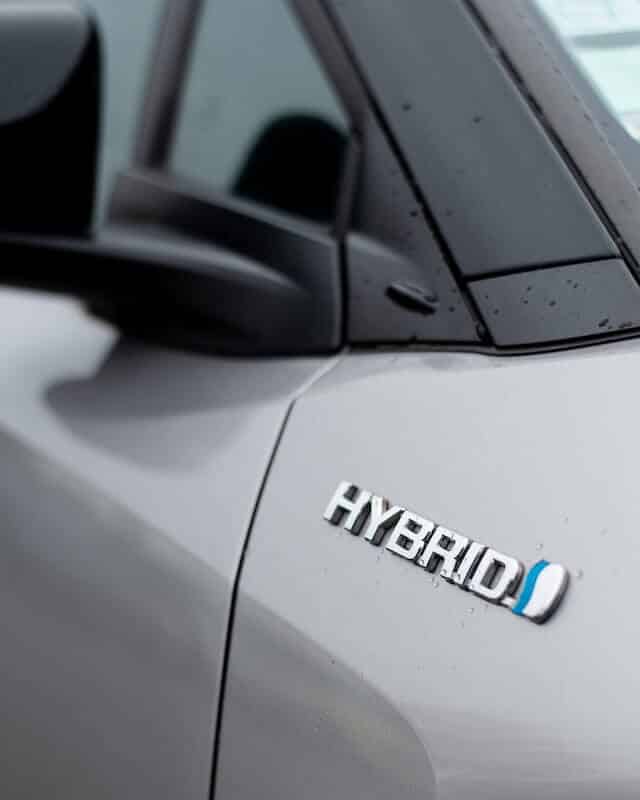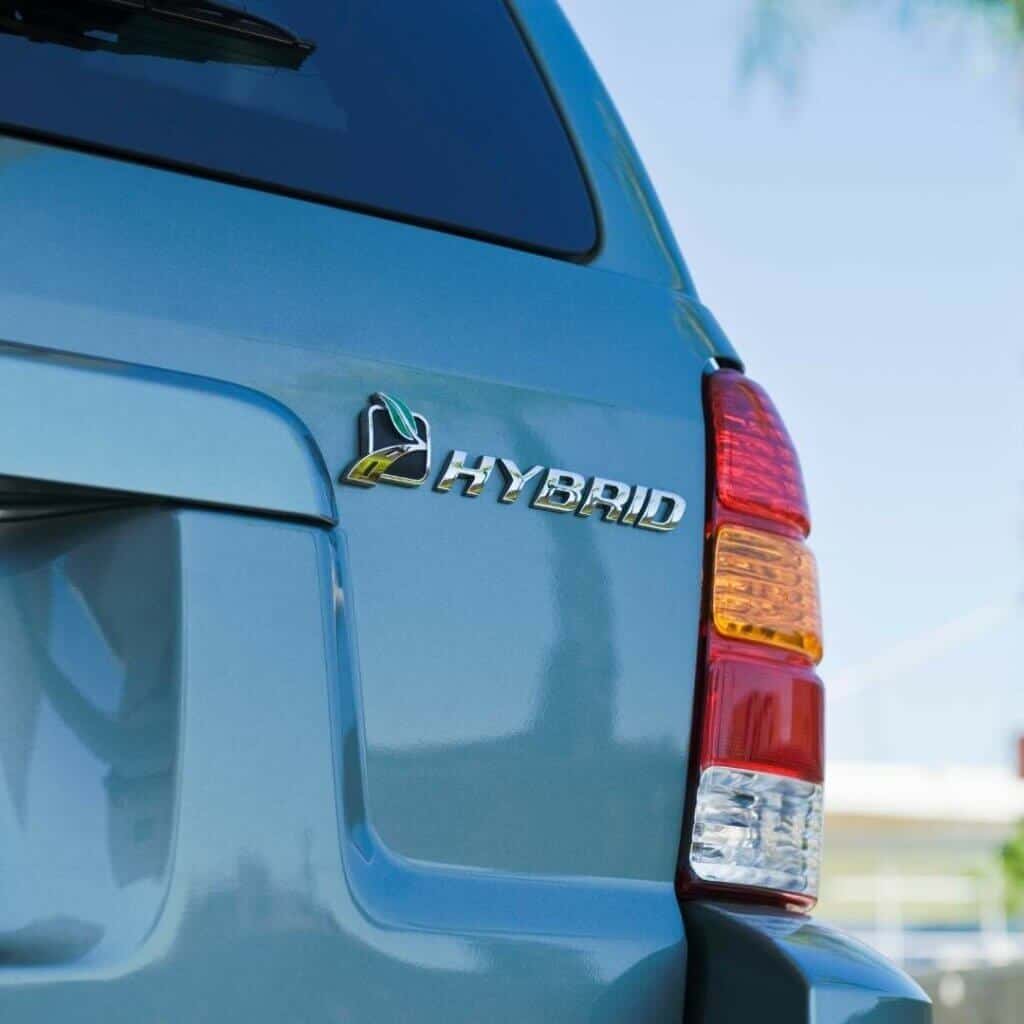Hybrid cars have started cropping up more and more as the idea of electrically powered vehicles became more and more common. With their rise, we have received some new options to look out for when purchasing a car, but with some new problems as well. We will currently look into Toyota Auris hybrid problems and how to deal with them when they crop up.
Toyota Auris hybrid problems

We should consider problems that are most common with hybrids.
For example, extra parts could be affected, and the manufacturer may have a specific approach to design that can hamper or aid the vehicle. For Toyota Auris, we’ll look over some of the issues present across all years of manufacturing.
The front brakes make odd sounds
One of the most reported issues with a Toyota Auris has to do with squeaking noises coming from the front brakes.
Of course, depending on the source of the problem, we will experience different noise levels. However, the seriousness of it can truly affect our driving experience. [1]
A very simple cause of such problems is rust. Rust can form in our brakes if moisture gets deeper into our car. Affecting the metal components and forming a layer of rust on it.
The squeaking happens as rust rubs against the components, the seriousness of the problem increasing the rustier our parts get.
It’s also common to experience light squeaking if our components are just made out of metal. This is because the metal coverage of the item can often be enough to cause odd noises as components rub against each other while operating.
Another source of squeaking can arrive from our brake pads becoming glazed. Brake calipers stick together, resulting in friction and heat, which will eventually harden and glaze the brake pad.
The fact of the matter is that we will end up with quite a few problems if this happens as it is the only cause of the squeaking that could affect our car. In addition, the glazed pads can be slower to respond, which will lessen the overall effectiveness of our brakes by a bit. [2]
Black smoke
Black smoke emanating from our car is never a good sign. There are many reasons why this may occur, but we will be looking directly at ones tied to Toyota Auris hybrids themselves.
A cause we see far too often is a blocked air filter. This can happen after an air filter hasn’t been replaced for a while, leading to debris accumulating on it.
When this occurs, we can expect quite a major blockage that will reduce the overall effectiveness of filtration and produce black smoke. [3]
The defectiveness of mass airflow sensors is another reason why we may end up experiencing black smoke coming out of our cars. The sensor itself is meant to gauge the volume and intensity of air entering the engine. Upon malfunction, that function is hampered by quite a bit.
The sensor’s job is to indirectly determine the amount of fuel injected into the vehicle’s cylinder and aid fuel combustion. The defectiveness of the sensor affects combustion, which, in turn, produces quite a bit more black smoke when operating.
Following the combustion problems, we reach yet another source of black smoke problems our car may have. The fuel injectors, being a key part of proper combustion, can end up causing such troubles. Black smoke most often occurs when fuel injectors get worn out or damaged.
If such an issue happens to our car, we should resolve it as soon as possible. Letting it persists will lead to solid carbon residue, which can further damage the components inside of our car.
The battery goes out fast
The more damming issues we can encounter relate to the quick draining of our car’s battery. As you can imagine, losing the necessary charge while driving is quite inconvenient.
Lacking ample fuel to reach our destination can be frustrating, but prolonged issues like this could lead to our hybrid getting little use out of its unique features.
Corroded battery cables can be a direct and simple cause of such problems. The car will have issues charging when cables are corroded or loose.
Either situation results in far less charge reaching our battery, and our battery will retain less charge. When the battery is to be used, we will find it lacking the full charge we desire, running out far before its perceived duration.
It could be as simple as a bad alternator that no longer dispenses power properly throughout the electrical systems within the vehicle. This malfunction can stem from age as well as damage to the alternator.
The alternator’s diode is susceptible to corrosion, and once it is corroded, the engine circuit will keep drawing power even when the vehicle is shut off.
The problem of the parasitic drain is also present. The parasitic drain refers to the battery keeping other car features operational.
A bit of that behavior is normal and completely fine with no effect on our battery. Still, if it gets out of hand, our entire battery could suffer in efficiency and provide very little mileage before running out. [4]
Toyota warranty coverage
A Toyota warranty will last for three years on average, or 36 months to be exact. The other way you can use up your warranty is if your car passes 36,000 miles. After that distance, you will end up with no warranty, just as if the 36 months ran out.
The coverage includes just about any part of the car. Of course, the insurance doesn’t cover stuff such as maintenance and wear. Any sort of defects that are found on the vehicle are covered by the warranty too. The manufacturer is responsible for these mistakes and, as such, will have to iron the issues out.
Adjustments to the vehicle required to achieve standard levels of performance are also covered by maintenance. However, there are ample cases where the problems of inadequately configured components result in further troubles with the vehicle. [5]
Toyota Auris Warranty coverage
The warranty of our car is quite important. It secures our car through any surprise damages it could suffer. A Toyota warranty is bound to come in handy. Considering how long it lasts, we are bound to get our money’s worth out of it.
Toyota warranties are also pretty decent with their coverage, taking into account imperfections during manufacturing as well as most damages your car may endure later in life. This forms a great safeguard against some problems that crop up later in the car’s lifespan, giving us extra financial safety.
Toyota Auris extended coverage
The stipulations for an extended warranty are quite simple. If your Toyota is less than ten years old and hasn’t crossed more than 100,000 miles, it is eligible for an extended warranty.
Both of these stipulations are easy to check, so getting an extended warranty is usually easy. The extension lasts for 12 months and has the same coverage as before.
Is it worth buying a used Toyota Auris?

The Toyota Auris has been reviewed quite well, especially in terms of reliability.
In addition, its decently long presence on the market has shown it to be a worthwhile hybrid to get with some standard hybrid stipulations attached to it.
As far as buying a used Toyota Auris goes, it is a decent purchase. The reports from those who have purchased one have been mostly positive.
The common problems outlined before still have a chance of occurring but are easily fixable for the potent features provided by Toyota Auris. This worthwhile nature is only accented further if the car is less than 10 years old.
Toyota Auris Recalls
Some issues require immediate action from the manufacturer. When this occurs, the vehicle is recalled from the market until the problem is resolved.
Basically, recalls only really happen when there’s an inherent flaw with a car model. If a model is left in circulation, the overall image of the manufacturer can suffer as well as the safety of the driver. Recalls help prevent these problems. [6]
Toyota Auris hybrid problems
The problems with recalled Toyota Auris change depending on the year. With the 2017-2018 recalls, the concerns were with the resistance characteristics of the fuel pump components.
The cars would end up with cracks in their components due to inadequate resistance being present.
Starting from 2015 and until 2018, Toyota Auris had recalls related to insufficient durability of the Exhaust Gas Recirculation, which caused coolant leaks and harmful deposits forming in the car.
Going a year back into 2014, we see yet another recall reason. This one stems from the damage to transistors in the Intelligent Power Modules. The high thermal stress caused damage to the transistors, which in turn harmed the effectiveness of the car.
These were the most common and more recent recall problems one could encounter with the Toyota Auris. However, while older ones exist, they have not cropped up again in the newer years of the car.
Toyota Auris battery replacement
Hybrids and electric cars will always have a certain edge based on one quality, how often their battery needs to be replaced. These batteries are a key part of the hybrid’s advantage so knowing when to replace them is fruitful.
As far as Toyota Auris is concerned, you should replace the battery every 4 to 5 years. While it may still be operational after that date, its efficiency will drastically fall off.
When we reach this point, operating our vehicle can feel like a hassle. The battery will go out too fast so any utility it would offer diminishes with it. Getting a replacement is always the better choice.
Related: Toyota Corolla Hybrid Problems
Toyota Auris vs Ford Fiesta
To get a rough take on the Toyota Auris’ place on the market, let’s compare it to one of the most popular hatchbacks, the Ford Fiesta. The two cars will quickly be judged in their interiors and interiors, with the aim being to compare their features rather than edging out a proper competitor. [7]
Interior Features
The hatchback is gauged by its comfort on the inside. Both of these cars are quite spacious, so you are bound to make use of them no matter the vehicle you opt for.
Toyota Auris provides a 7-inch touchscreen that you can use to manipulate a lot of the features of the car. Whether it’s navigation, using it as a screen for the rearview camera, or just as a way to switch music around.
All of the standard features are included as well, so you can expect to enjoy comfort and convenience at the same time.
Ford Fiesta is no worse in terms of internal space, with an 8-inch touchscreen to use and configure any entertainment or functions you may have in your car.
This includes vehicle navigation, phone connectivity, standard Bluetooth, and even the use of voice commands to call people directly.
Exterior Features
The exterior of a Toyota Auris is rather simple. This design is meant to provide ample transport, so the overall appearance has no overt features. However, the basic Toyota design still creates an attractive car with ample support in features present.
Ford Fiesta is more elaborate in its appearance. It is given a much more modern look with the extra smoothness to its overall appearance. Do not be mistaken, and it is still a capable hatchback that will offer great functionality as well as appearance.
While not quite on the level of Ford Fiesta, Toyota Auris can still hold its ground in this hatchback competition. There are some features and design details that could be enhanced but nonetheless, it’s a close race.
Related: Toyota Estima Hybrid Problems
Conclusion
With the hybrids, we can expect some problems that can take a bit of effort to find the symptom for and resolve. However, while this makes them a bit more annoying to deal with, it doesn’t invalidate their qualities.
These qualities shine through even in situations where you buy a used Toyota Auris, so it’s apparent there’s worth to this model.
Even when squaring off against other cars, Toyota Auris can stand its ground, so if you are looking for a new hybrid, this may be the one for you. Remember to treat it well; that will get you more than a decade of driving.
Read Next: Toyota Venza Problems



